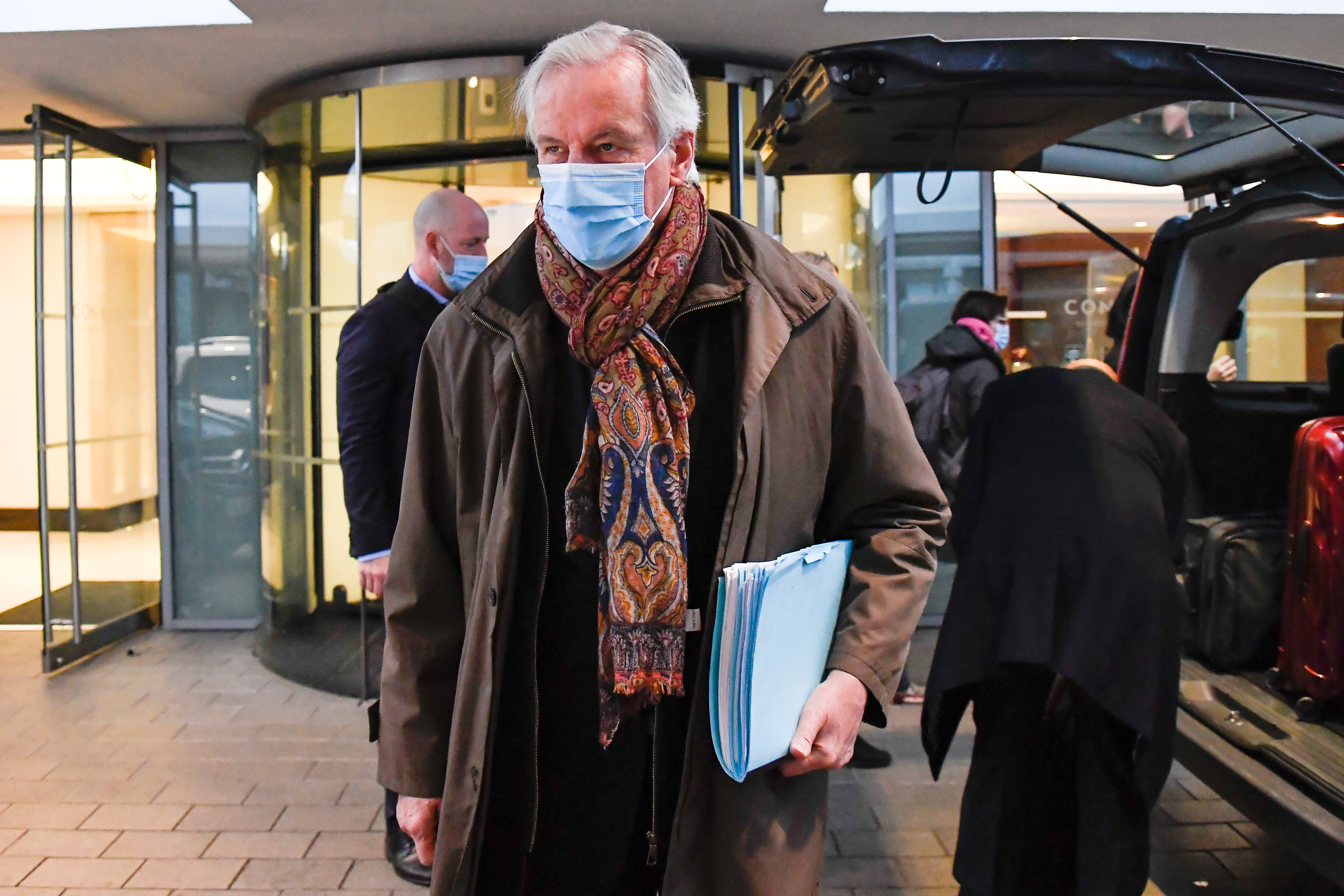UK and EU leaders to hold crunch talks on post-Brexit ties
British Prime Minister Boris Johnson and the European Union’s top official are set to discuss the state of play of post-Brexit trade discussions after negotiators paused talks in light of their inability to bridge an array of differences

Your support helps us to tell the story
From reproductive rights to climate change to Big Tech, The Independent is on the ground when the story is developing. Whether it's investigating the financials of Elon Musk's pro-Trump PAC or producing our latest documentary, 'The A Word', which shines a light on the American women fighting for reproductive rights, we know how important it is to parse out the facts from the messaging.
At such a critical moment in US history, we need reporters on the ground. Your donation allows us to keep sending journalists to speak to both sides of the story.
The Independent is trusted by Americans across the entire political spectrum. And unlike many other quality news outlets, we choose not to lock Americans out of our reporting and analysis with paywalls. We believe quality journalism should be available to everyone, paid for by those who can afford it.
Your support makes all the difference.British Prime Minister Boris Johnson and the European Union's top official are set to discuss the state of play of post-Brexit trade discussions later Saturday after negotiators paused talks in light of their inability to bridge an array of differences.
With the discussions stuck over the same issues for months, Johnson and Ursula von der Leyen, the president of the EU s executive European Commission, will see if there is a route to a deal.
With the U.K. s post-Brexit transition period due to conclude at the end of the year, the discussions are clearly facing a crunch point, not least because of the necessary approvals required from both sides. Without an agreement in place, tariffs will end up being imposed on traded goods at the start of 2021.
Months of negotiations have produced agreement on a swath of issues, but serious differences remain over the “level playing field” — the standards the U.K. must meet to export into the bloc — and how future disputes are resolved. That’s key for the EU, which fears Britain will slash social and environmental standards and pump state money into U.K. industries, becoming a low-regulation economic rival on the bloc’s doorstep.
EU chief negotiator Michel Barnier and his British counterpart, David Frost, agreed Friday to “pause” negotiations while they brief political leaders
"We will keep calm as always and if there is a way, still a way, we will see," Barnier said Saturday morning outside a hotel in London before heading off to Brussels.
Though the U.K. left the EU on Jan. 31, it remains within the bloc’s tariff-free single market and customs union until the end of this year. A trade deal by then would ensure there are no tariffs and quotas on trade in goods between the two sides, but there would still be technical costs, partly associated with customs checks and non-tariff barriers on services.
Though both sides would suffer economically from a failure to secure a trade deal, most economists think the British economy would take a greater hit, at least in the near-term, as it is relatively more reliant on trade with the EU than vice versa.
___
Follow all AP stories about Brexit and British politics at https://apnews.com/Brexit